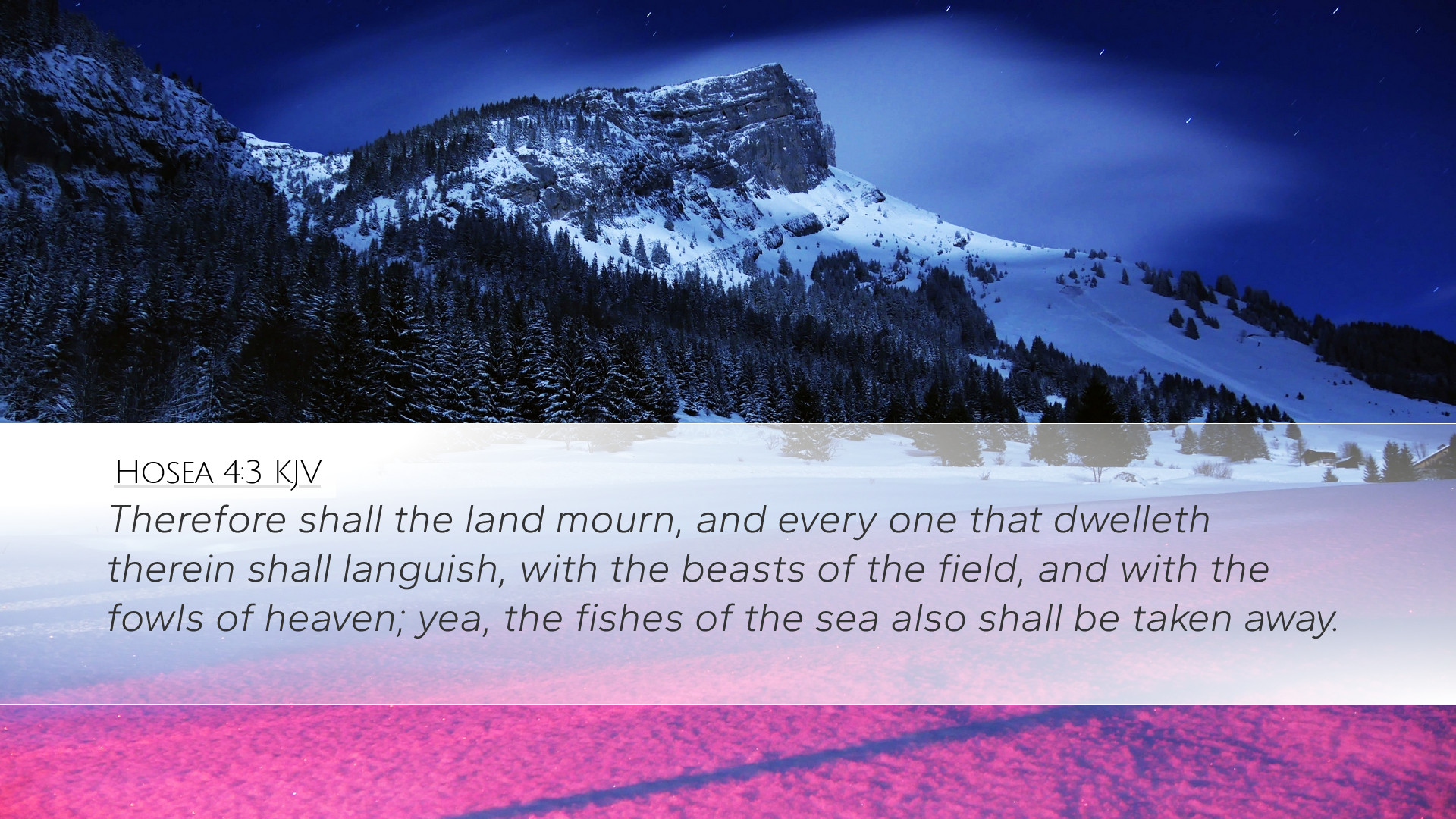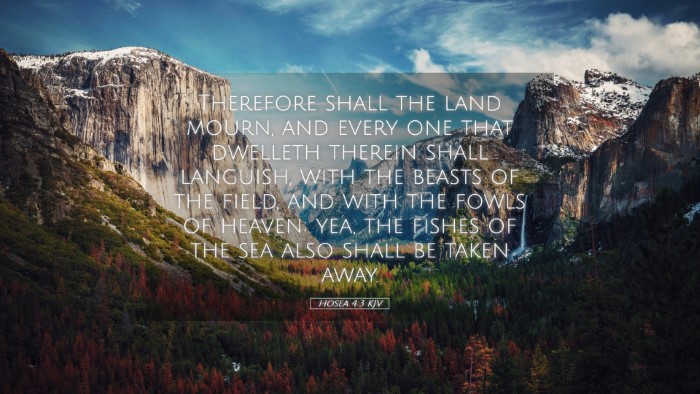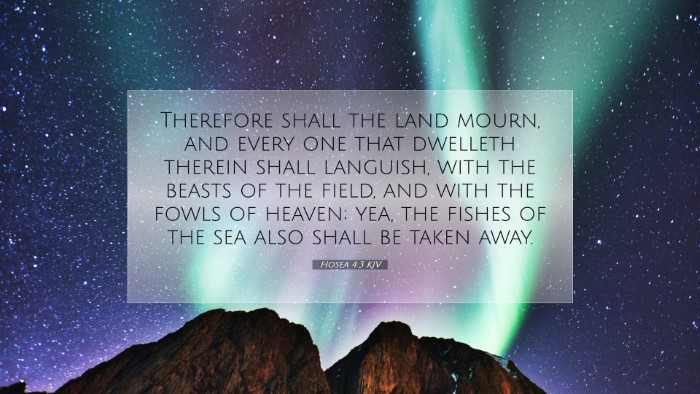Old Testament
Genesis Exodus Leviticus Numbers Deuteronomy Joshua Judges Ruth 1 Samuel 2 Samuel 1 Kings 2 Kings 1 Chronicles 2 Chronicles Ezra Nehemiah Esther Job Psalms Proverbs Ecclesiastes Song of Solomon Isaiah Jeremiah Lamentations Ezekiel Daniel Hosea Joel Amos Obadiah Jonah Micah Nahum Habakkuk Zephaniah Haggai Zechariah MalachiHosea 4:3
Hosea 4:3 KJV
Therefore shall the land mourn, and every one that dwelleth therein shall languish, with the beasts of the field, and with the fowls of heaven; yea, the fishes of the sea also shall be taken away.
Hosea 4:3 Bible Commentary
Commentary on Hosea 4:3
Verse: Hosea 4:3 - “Therefore shall the land mourn, and everyone that dwelleth therein shall languish, with the beasts of the field, and with the fowls of heaven; yea, the fishes of the sea also shall be taken away.”
Introduction
The book of Hosea is a profound exploration of Israel's unfaithfulness and God's unwavering love. In the context of Chapter 4, God, through Hosea, addresses the moral decay within Israel, exposing the blame it should rightly carry for its calamities. Verse 3 encapsulates the consequences of sin, highlighting the environmental and societal anguish that follows divine judgment.
Theological Significance
This verse projects a vivid picture of the desolation affecting the land, animals, and people. As noted by Matthew Henry, the mourning of the land signifies the deep impact of human actions on creation. The chord struck here evokes the doctrine of the interconnectedness of life: when humanity sins, the natural world reflects that brokenness.
- Spiritual Decline: The mourning of the land suggests that sin leads to a collective suffering that transcends humanity, affecting all creation.
- Impact of Sin: The gravity of Israel's sin is such that it results in a holistic crisis—spiritual, emotional, and environmental.
Commentators' Insights
Albert Barnes remarks that “those who dwell in the land” refers to all inhabitants, emphasizing that their sins directly influence their surroundings. The phrase “the beasts of the field” and “the fowls of heaven” underlines that creation responds to humanity's iniquities. Hence, this encompasses both agricultural and ecological dimensions.
Adam Clarke elaborates on the phrase, suggesting that the taking away of creatures signifies a judgment that reflects the divine displeasure towards unjust and corrupt practices. This concept resonates with the notion of divine retribution, revealing that systemic injustice has tangible consequences beyond just human interactions.
Consequences of Sin
The direct consequences of sin as outlined in Hosea 4:3 can be organized as follows:
- Universal Lament: “Therefore shall the land mourn.” Here, the personification of the land indicates an intrinsic connection between the environment and moral integrity.
- Impact on Society: The verse stresses that human sin affects everyone (“everyone that dwelleth therein”). It serves as a reminder of community purpose and responsibility.
- Ecological Suffering: The mention of animals and fish reflects a broader ecological devastation, highlighting that no segment of creation is insulated from the effects of human moral failures.
Practical Applications
From a pastoral perspective, Hosea 4:3 can serve as a powerful sermon topic, encouraging congregants to reflect on their actions and their broader impacts. Some practical applications may include:
- Personal Reflection: Encouraging congregants to assess their personal lives through the lens of communal ethics and environmental stewardship.
- Community Engagement: Initiating community discussions on social justice and environmental care, linking faith with practical activism.
- Prayer for Restoration: Leading prayer efforts that seek not only personal revival but a rebirth of commitment to care for God’s creation.
Conclusion
Hosea 4:3 stands as a stark reminder of the intertwining fate of humanity and the natural world. It warns against the impact of sin while offering guidance for restoration and community health. As believers engage with this text, they are called to pursue a holistic view of their faith that honors God through justice, mercy, and responsible stewardship of creation.


